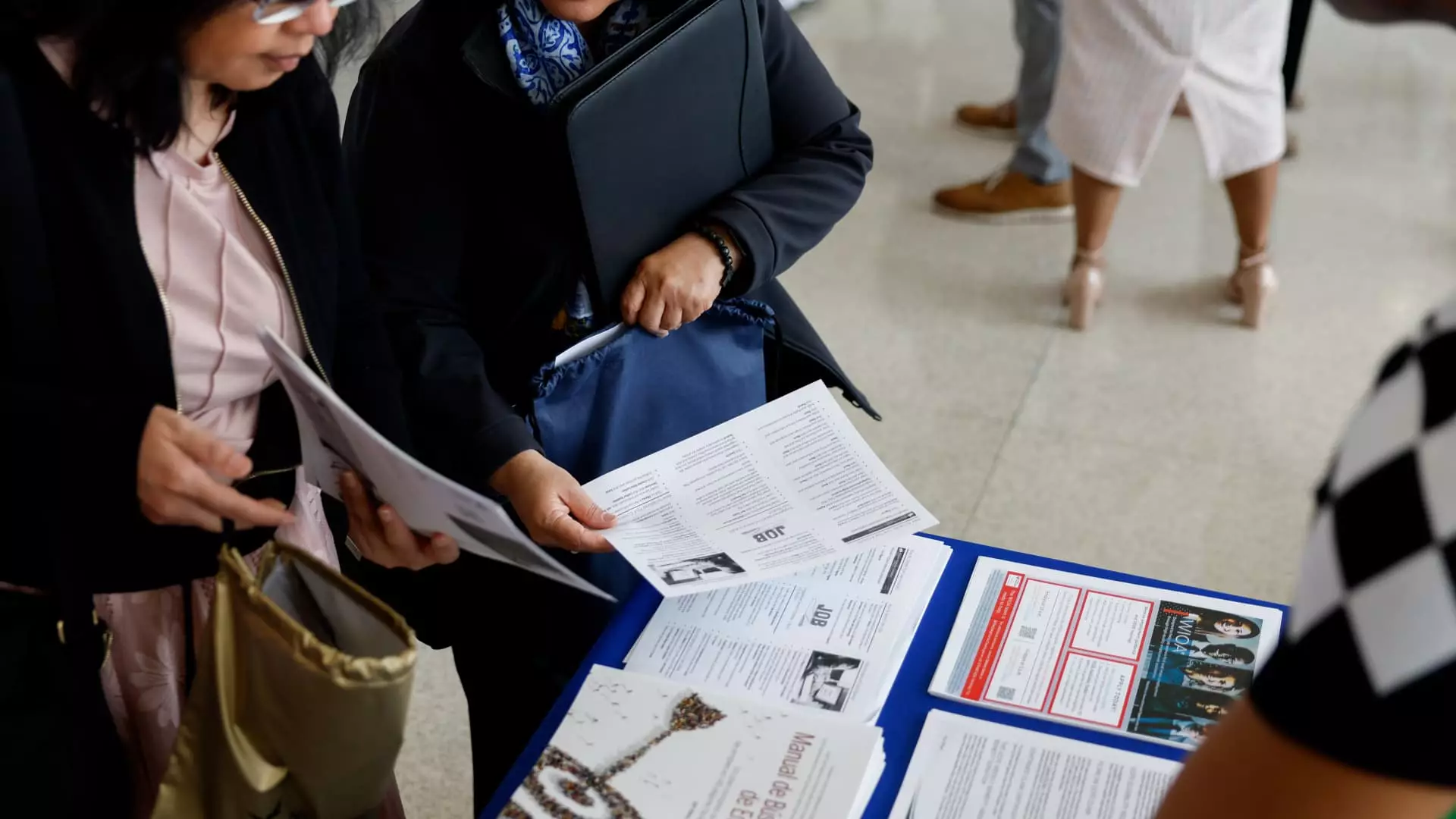In today’s job market, a strange contradiction prevails. The data suggests a healthy economy with record low unemployment rates sliding at 4.2%, and yet, for many job seekers, the quest for employment often resembles a Sisyphean struggle. While the numbers may look promising on the surface—companies allegedly hiring and economic growth lingering—those actively looking for a job face an uphill battle with fewer opportunities available. This paradox emerges amidst reports of companies hiring at the slowest pace since 2014, showcasing a growing disillusionment that most are too hesitant to acknowledge.
What’s particularly troubling is the staggering statistic that nearly 1 in 4 unemployed individuals are classified as long-term unemployed—those who have been out of work for six months or more. Up from 19.6% this time last year, it paints a concerning picture of a labor market that, while seemingly robust, is leaving many behind. The notion of “low firing, low hiring” coined by economists such as Cory Stahle crystallizes this dichotomy, emphasizing a widening economic chasm between those securely employed and others struggling relentlessly to find their footing.
The Impact of Economic Headwinds
The underlying currents that have stalled job creation are multifaceted, ranging from waning consumer confidence to geopolitical tensions. Economic turbulence often leads companies to tighten their hiring processes out of fear of instability. Amid trade wars and fluctuating market sentiments, potential job seekers might find themselves facing an increasingly grim landscape where even the most qualified candidates may struggle to land interviews.
Career coach Mandi Woodruff-Santos succinctly captures the sentiment: “If they are hiring, it’s very infrequent.” This caution permeates the corporate mindsets, influencing decisions related not only to hiring but also to inter-company promotions. Fundamental shifts in employee worth and potential have made existing roles much more precarious, intensifying the challenge for those seeking new avenues of employment.
The Importance of Networking Redefined
As job seekers grapple with the realities of a stagnant market, traditional methods of job searching must evolve. Gone are the days where submitting dozens of resumes would suffice. The modern job seeker is compelled to innovate their approach, leaning heavily on personal relationships and networking strategies that showcase their unique abilities. Building connections within the industry can no longer be an option; it must be an imperative.
Experts advise that effective networking should transcend conventional events like job fairs. Seeking out conferences, lectures, and seminars in pertinent fields can yield connections that simply sifting through job boards cannot. This nuanced approach to networking requires a creativity that many job seekers may overlook in the desperate race for employment.
For instance, if an IT professional encounters a workshop on cybersecurity presented by a notable figure in their field, attending could yield substantial rewards in the form of vital connections or insider information on upcoming job openings. Such strategic outreach embodies the proactive mentality needed to navigate this complex landscape.
Tailoring Strategies for Unique Opportunities
In this competitive environment, generic resumes are likely to become the death knell for many applications. Instead, candidates are urged to customize their resumes and cover letters, meticulously echoing the language of job descriptions and underscoring their specific skills and past achievements. Employers are not merely looking for qualifications; they are searching for evidence of success—a quantifiable track record that assures them of a candidate’s capability to deliver results.
It’s not enough to merely recount past responsibilities; applicants must narrate their accomplishments with statistics that highlight their contribution to previous employers. This approach signifies a candidate who is not merely job hunting but rather presenting themselves as a business asset.
Moreover, for those facing long-term unemployment, engaging in continued education through affordable courses or certifications can mitigate feelings of inadequacy that accompany time off from work. Thriving in the face of adversity is crucial for showcasing a forward-thinking attitude that may resonate with potential employers.
The Value of Short-term Roles and Adaptability
With opportunities often fewer and further between, remaining open to alternative employment avenues such as contract work, hybrid roles, or positions in adjacent industries can provide a pathway toward sustainable career development. Even temporary roles can serve as a rich soil for networking and skill enhancement, allowing candidates to remain engaged while they seek out their ideal position.
Today’s job market demands resilience and flexibility, urging individuals not only to cast a wider net but to stay proactive and strategic in their endeavors. Embracing adaptability has transformed into an essential skill, with those willing to navigate the uncomfortable terrain of uncertainty standing a better chance of emerging victorious in the long run. The precarious balance in today’s employment landscape may be disheartening, but succeeding in the midst of these challenges may also lead to unforeseen, rewarding opportunities.

